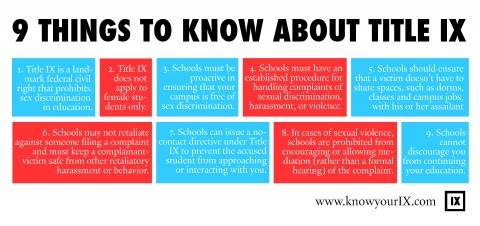South Carolina Campus Misconduct Lawyer
Chloe Neely

As a Staff Attorney, Iliana Konidaris joined Legal Momentum in March. She now concentrates on issues of gender justice, such as ensuring that victims of sexual assault and domestic violence have access to the legal system. Iliana worked as a civil rights lawyer at Giskan Solotaroff Anderson and Stewart LLP in New York City prior to joining Legal Momentum. She defended women in civil rights issues, class action lawsuits, and situations involving job discrimination while she was there.
Lisa Cloutier
Chloe Neely

Another example of how this type of harassment affects students is a case in which Plaintiff Hope Padgett filed an action against the Defendant Davie County School District. Plaintiff Hope Padgett alleged student-on-student sexual harassment. In response to her motion for summary judgment, the school district denied her claim, and filed a Motion for Partial Summary Judgment based on the facts presented by the plaintiff.
Sheila Willis is a Title IX Attorney in South Carolina
Betty Beck
Cari Simon, one of the best Title IX lawyers in the country, protects victims of sexual assault, domestic violence, and other types of harassment. She obtained her law degree from Harvard and worked as a law clerk for a Ninth Circuit Appeals court. She is frequently requested by a variety of organizations to lecture, consult, and train. Ms. Simon continues to have an impact on the lives of sexual assault victims in her capacity as faculty for the National Organization of Victim Assistance Campus Advocacy Credential Training.

Specifically, Title IX provides that "No person in the United States shall, on the basis of sex, be excluded from participation in, be denied the benefits of, or be subjected to discrimination under any educational program or activity receiving Federal financial assistance."
Title IX requires schools to adopt and publish grievance procedures for students to file complaints of sex discrimination, including complaints of sexual harassment or sexual violence. Schools can use general disciplinary procedures to address complaints of sex discrimination.
Unwanted sexual behavior, advances, or requests for favors. Unwelcomed verbal, visual, or physical sexual conduct. Offensive, severe, and/or frequent remarks about a person's sex. Harassment of a sexual nature which interferes with an individual's right to an education and participation in a program or activity.
Title IX is the most commonly used name for the federal civil rights law in the United States of America that was passed as part (Title IX) of the Education Amendments of 1972. It prohibits sex-based discrimination in any school or any other education program that receives funding from the federal government.
Title IX responsibilities can result in false allegations that nevertheless result in serious consequences before a person is proven guilty, including school suspension and potential expulsion from degree programs. School administrators sometimes have failed to protect the rights of the accused.
Title IX also bars discrimination based on disability. In fact, the scope of this law applies to everything from discrimination to sexual harassment, sexual assault, bullying, cyberbullying, retaliation, stalking and violence.